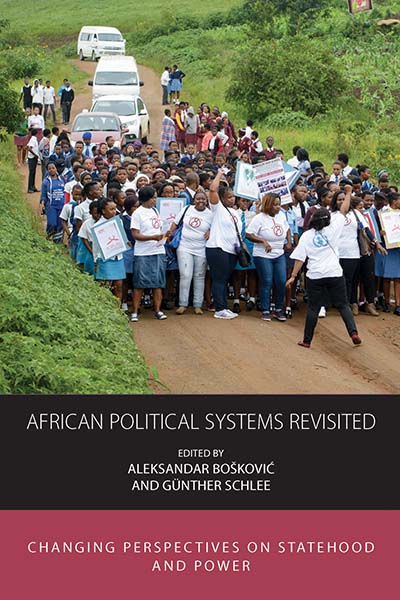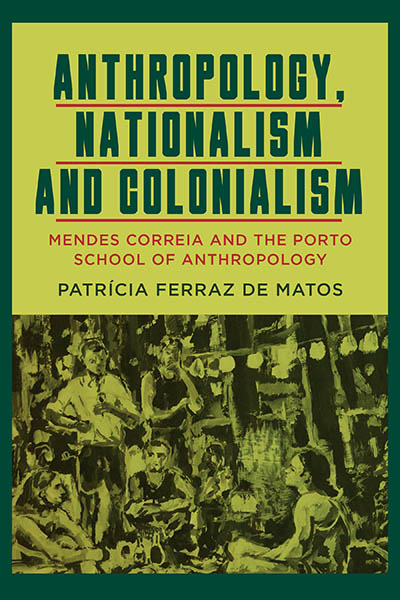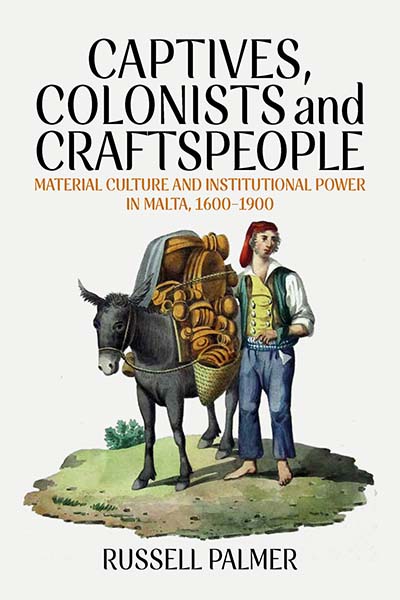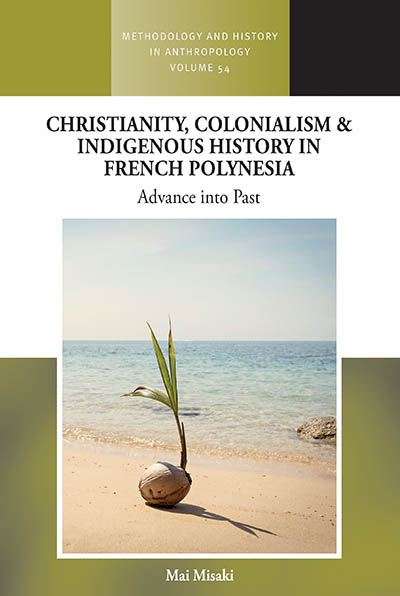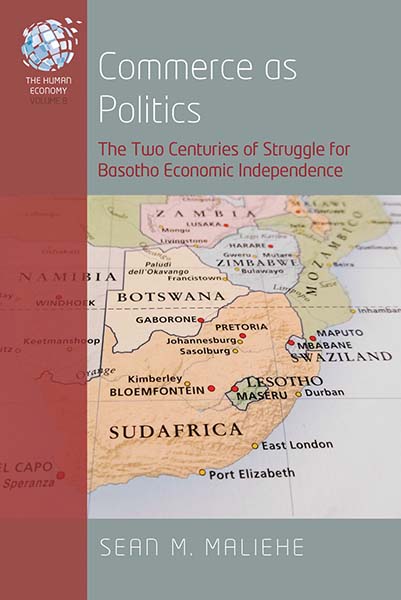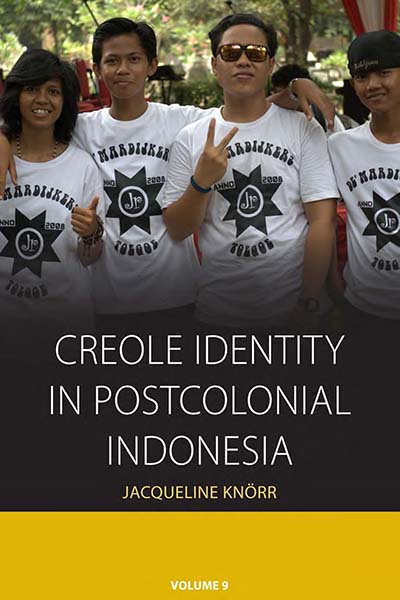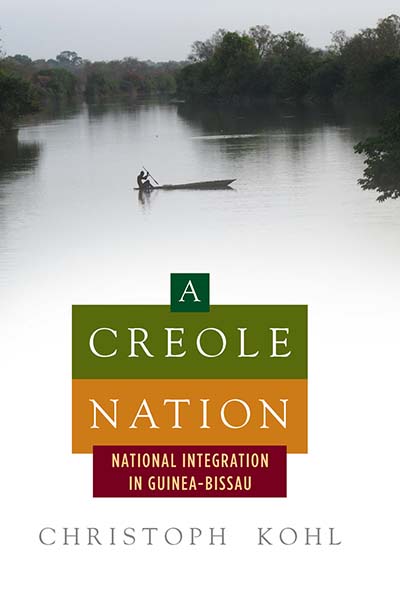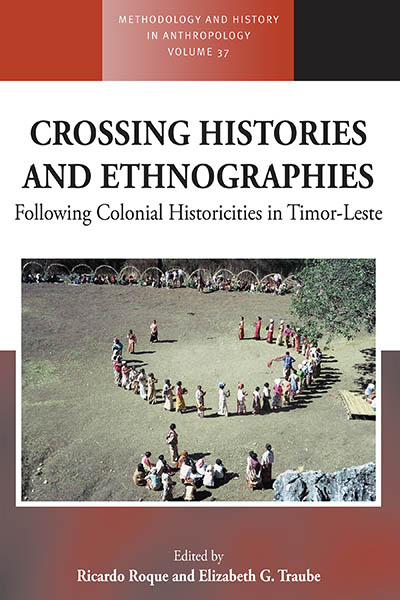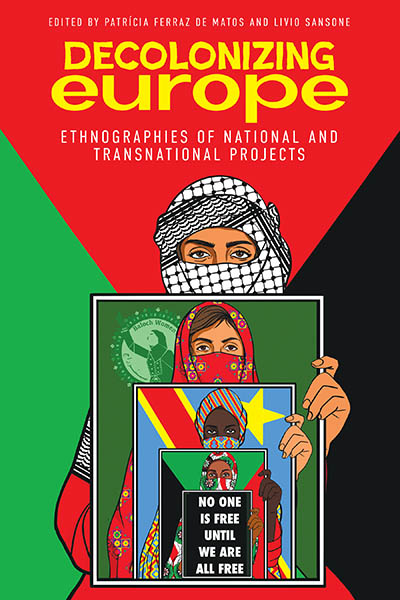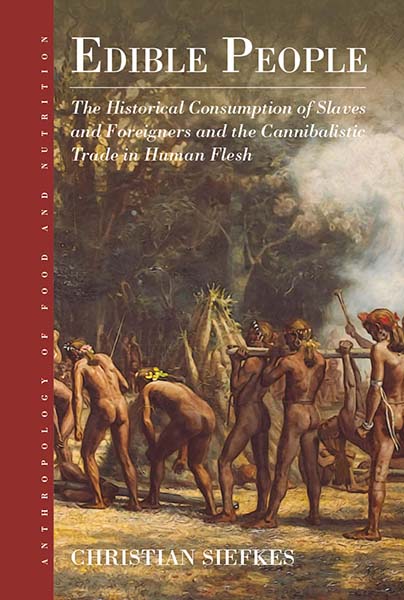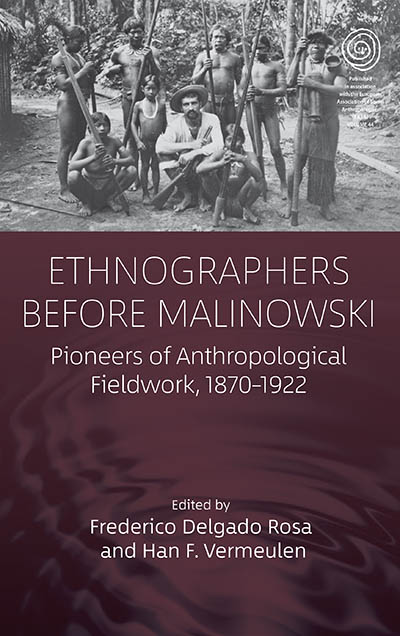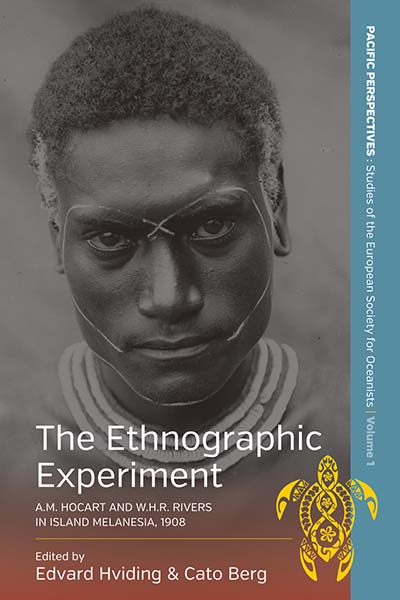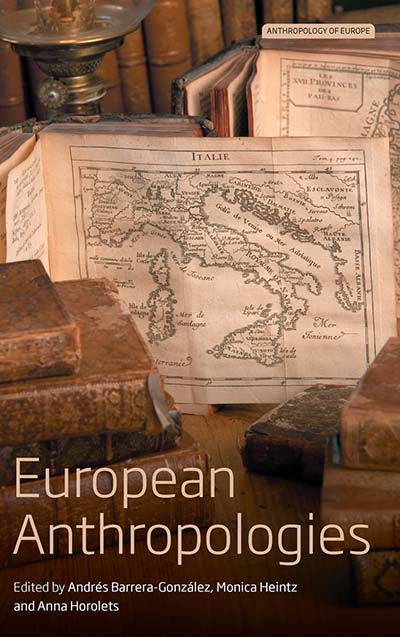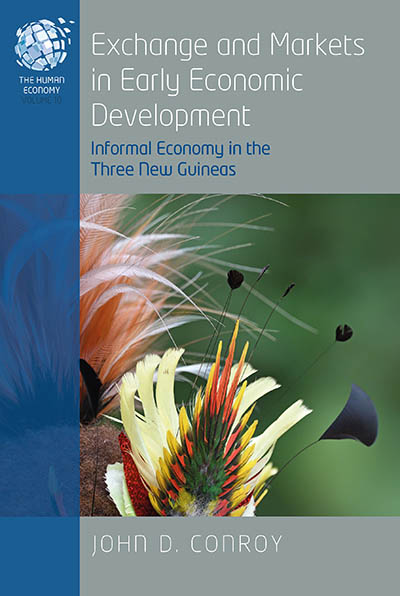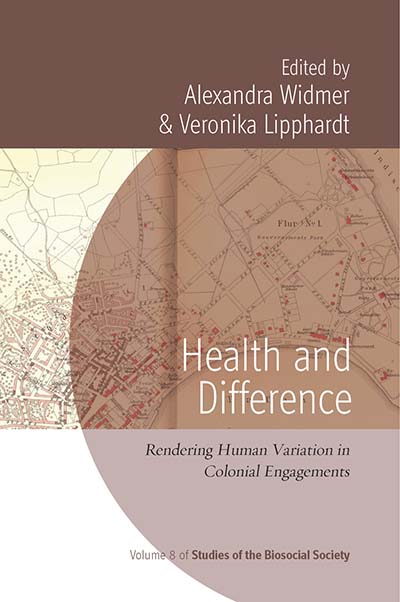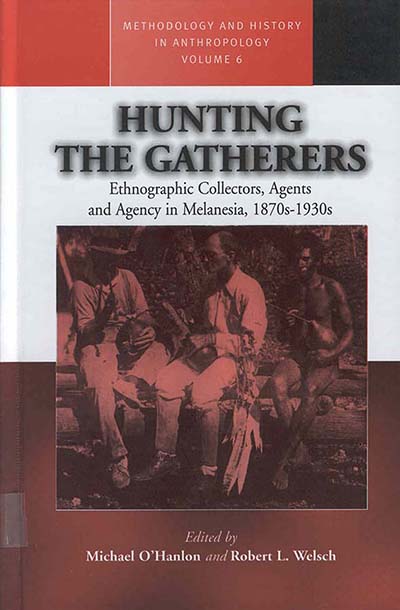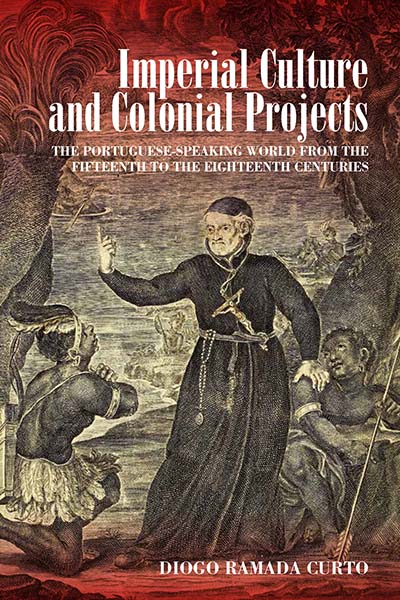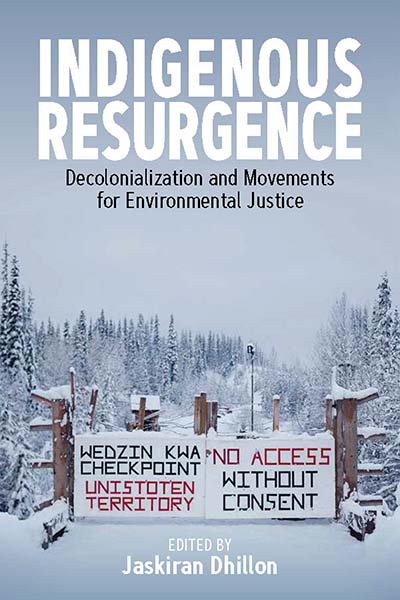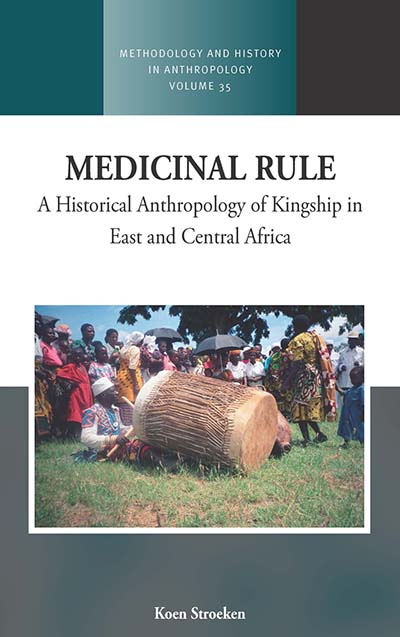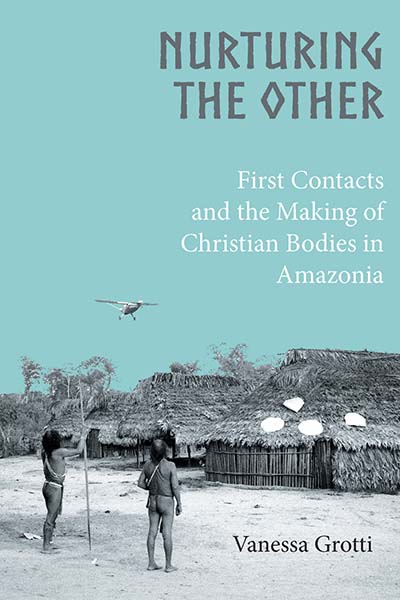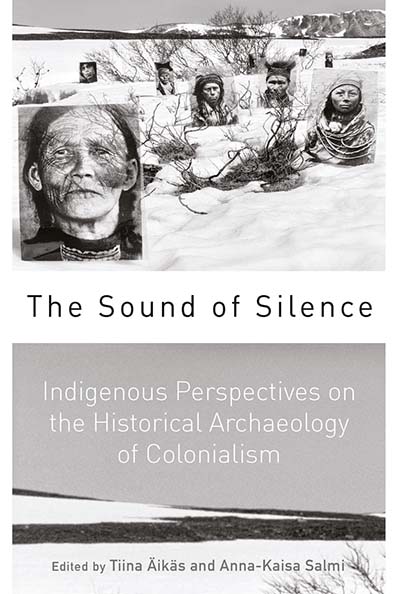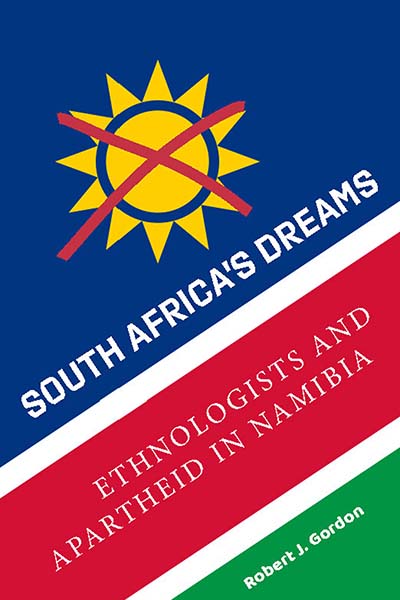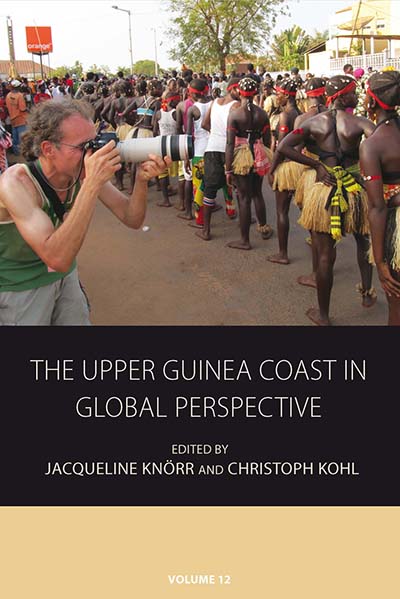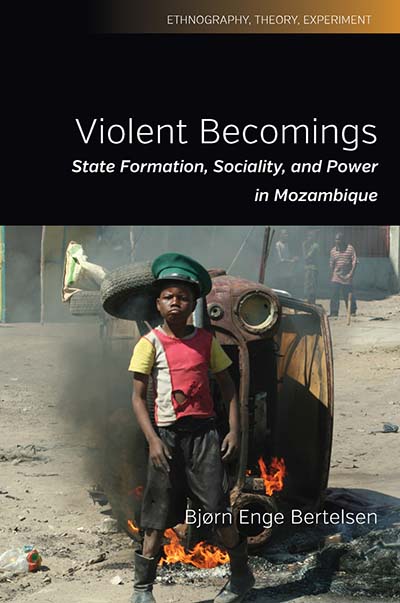Home -> Browse
-

African Political Systems Revisited
Changing Perspectives on Statehood and Power
Bošković, A. & Schlee, G. (eds)
Reexamining a classical work of social anthropology, African Political Systems (1940), edited by Fortes and Evans-Pritchard, this book looks at the colonial and academic context from which the work arose, as well as its reception and its subject matter, and looks at how the work can help with analysis of current politics in Africa. This book critically reflects upon the history of anthropology. It also contributes to a political anthropology which is aware of its antecedents, self-reflexive as a discipline, conscious of pitfalls and biases, and able to locate itself in its academic, social and political environment.
Subjects: Political and Economic Anthropology Colonial History Development Studies
Area: Africa
-

Anthropology, Nationalism and Colonialism
Mendes Correia and the Porto School of Anthropology
Ferraz de Matos, P.
A major contribution to the history of European anthropology, this book highlights the Porto School of Anthropology and analyses the work of its main mentor, Mendes Correia (1888-1960). It goes beyond a Portuguese focus to present a wider comparative analysis in which the colonial empire, knowledge of origins, ethnic identity and cultural practices all receive special attention. The analysis takes into account the fact that nationalism, as associated with an ethno-racial paradigm, decisively influenced discourse and scientific and political practices.
Subjects: Anthropology (General) Colonial History Political and Economic Anthropology
Area: Southern Europe
-

Captives, Colonists and Craftspeople
Material Culture and Institutional Power in Malta, 1600–1900
Palmer, R.
Over the course of four centuries, the island of Malta underwent several significant political transformations, including its roles as a Catholic bastion under the Knights of St. John between 1530 and 1798, and as a British maritime hub in the nineteenth century. This innovative study draws on both archival evidence and archeological findings to compare slavery and coerced labor, resource control, globalization, and other historical phenomena in Malta under the two regimes: one feudal, the other colonial. Spanning conventional divides between the early and late modern eras, Russell Palmer offers here a rich analysis of a Mediterranean island against a background of immense European and global change.
Subjects: Colonial History Archaeology
Area: Southern Europe
-

Christianity, Colonialism and Indigenous History in French Polynesia
Advance into Past
Misaki, M.
In an increasingly modernised French Polynesian society, some Christians have been tackling contemporary social issues and repatriate traditional indigenous values . Pursuing the past in the present means grappling with ongoing existential issues as an indigenous people, such as the dismantling of the kinship community, the decline of domestic agriculture and the loss of indigenous cultural heritage. Māòhi Christians strive to reconnect with a perceived Indigenous, sacred past within a present they consider to be alienating. This book illustrates how indigenous Christians perceive social change and how their historical perceptions inform the creation of their own Christianity.
Subjects: Anthropology of Religion Colonial History Sociology
Area: Asia-Pacific
-

Commerce as Politics
The Two Centuries of Struggle for Basotho Economic Independence
Maliehe, S. M.
This is the first comprehensive economic history of the Basotho people of Southern Africa (in colonial Basutoland, then Lesotho) and spans from the 1820s to the present day. The book documents what the Basotho have done on their own account, focusing on their systematic exclusion from trade and their political efforts to insert themselves into their country’s commerce. Although the colonial and post-colonial periods were unfavourable to the Basotho, they have, before and after colonial rule, launched impressive commercial initiatives of their own, which bring hope for greater development and freedom in their struggle for economic independence.
Subjects: History (General) Political and Economic Anthropology Colonial History
Area: Africa
-

Correcting the Record
Essays on the History of American Anthropology
Lewis, H. S.
The critique of twentieth-century American anthropology often portrays anthropologists of the past as servants of colonialism who “extracted” information from indigenous peoples and published works causing them harm. Herbert S. Lewis recovers the reality of the first century of American anthropology as a vital scholarly discipline that rejected established ideas of race, insisted on the value of very different ways of life, and delivered irreplaceable ethnographic studies. This volume presents powerful refutations of the accumulated damaging myths about anthropology’s history.
Subjects: Anthropology (General) Theory and Methodology Colonial History
-

Creole Identity in Postcolonial Indonesia
Knörr, J.
Contributing to identity formation in ethnically and religiously diverse postcolonial societies, this book examines the role played by creole identity in Indonesia, and in particular its capital, Jakarta. While, on the one hand, it facilitates transethnic integration and promotes a specifically postcolonial sense of common nationhood due to its heterogeneous origins, creole groups of people are often perceived ambivalently in the wake of colonialism and its demise, on the other. In this book, Jacqueline Knörr analyzes the social, historical, and political contexts of creoleness both at the grassroots and the State level, showing how different sections of society engage with creole identity in order to promote collective identification transcending ethnic and religious boundaries, as well as for reasons of self-interest and ideological projects.
Subjects: Anthropology (General) Colonial History
Area: Asia
-

A Creole Nation
National Integration in Guinea-Bissau
Kohl, C.
Despite high degrees of cultural and ethnic diversity as well as prevailing political instability, Guinea-Bissau’s population has developed a strong sense of national belonging. By examining both contemporary and historical perspectives, A Creole Nation explores how creole identity, culture, and political leaders have influenced postcolonial nation-building processes in Guinea-Bissau, and the ways in which the phenomenon of cultural creolization results in the emergence of new identities.
Subjects: Anthropology (General) Colonial History Political and Economic Anthropology
Area: Africa
-

Crossing Histories and Ethnographies
Following Colonial Historicities in Timor-Leste
Roque, R. & Traube, E. G. (eds)
The key question for many anthropologists and historians today is not whether to cross the boundary between their disciplines, but whether the idea of a disciplinary boundary should be sustained. Reinterpreting the dynamic interplay between archive and field, these essays propose a method for mutually productive crossings between historical and ethnographic research. It engages critically with the colonial pasts of indigenous societies and examines how fieldwork and archival studies together lead to fruitful insights into the making of different colonial historicities. Timor-Leste’s unusually long and in some ways unique colonial history is explored as a compelling case for these crossings.
Subjects: Anthropology (General) Colonial History Sociology
Area: Asia-Pacific
-

Decolonizing Europe
Ethnographies of National and Transnational Projects
Ferraz de Matos, P. & Sansone, L. (eds)
Inspired by the global resonance of the Black Lives Matter movement in 2020, this book adds to the current discussion on the idea of decolonizing Europe. Drawing inspiration from the study of colonialism, postcolonialism and the imperative to decolonize knowledge and practice, the editors bring together a group of scholars approaching these issues through ethnographic inquiry. The volume explores how race, colonial legacies and structural inequality are addressed across diverse European contexts – north, central, eastern and southern – as well as in their entanglements with regions beyond Europe. It offers critical, grounded insights into the possibilities and challenges of decolonial thinking today.
Subjects: Political and Economic Anthropology Colonial History
Area: Europe
-

Edible People
The Historical Consumption of Slaves and Foreigners and the Cannibalistic Trade in Human Flesh
Siefkes, C.
While human cannibalism has attracted considerable notice and controversy, certain aspects of the practice have received scant attention. These include the connection between cannibalism and xenophobia: the capture and consumption of unwanted strangers. Likewise ignored is the connection to slavery: the fact that in some societies slaves and persons captured in slave raids could be, and were, killed and eaten. This book explores these largely forgotten practices and ignored connections while making explicit the links between cannibal acts, imperialist influences and the role of capitalist trading practices. These are highly important for the history of the slave trade and for understanding the colonialist history of Africa.
Subjects: Food & Nutrition Anthropology (General) Colonial History
-

Ethnographers Before Malinowski
Pioneers of Anthropological Fieldwork, 1870-1922
Rosa, F. & Vermeulen, H. F. (eds)
Focusing on some of the most important ethnographers in early anthropology, this volume explores twelve defining works in the foundational period from 1870 to 1922. It challenges the assumption that intensive fieldwork and monographs based on it emerged only in the twentieth century. What has been regarded as the age of armchair anthropologists was in reality an era of active ethnographic fieldworkers, including women practitioners and Indigenous experts. Their accounts have multiple layers of meaning, style, and content that deserve fresh reading. This reference work is a vital source for rewriting the history of anthropology.
Subjects: Anthropology (General) History (General) Colonial History
-

The Ethnographic Experiment
A.M. Hocart and W.H.R. Rivers in Island Melanesia, 1908
Hviding, E. & Berg, C. (eds)
In 1908, Arthur Maurice Hocart and William Halse Rivers Rivers conducted fieldwork in the Solomon Islands and elsewhere in Island Melanesia that served as the turning point in the development of modern anthropology. The work of these two anthropological pioneers on the small island of Simbo brought about the development of participant observation as a methodological hallmark of social anthropology. This would have implications for Rivers’ later work in psychiatry and psychology, and Hocart’s work as a comparativist, for which both would largely be remembered despite the novelty of that independent fieldwork on remote Pacific islands in the early years of the 20th Century. Contributors to this volume—who have all carried out fieldwork in those Melanesian locations where Hocart and Rivers worked—give a critical examination of the research that took place in 1908, situating those efforts in the broadest possible contexts of colonial history, imperialism, the history of ideas and scholarly practice within and beyond anthropology.
Subjects: Anthropology (General) Colonial History
Area: Asia-Pacific
-

European Anthropologies
Barrera-González, A., Heintz, M. & Horolets, A. (eds)
In what ways did Europeans interact with the diversity of people they encountered on other continents in the context of colonial expansion, and with the peasant or ethnic ‘Other’ at home? How did anthropologists and ethnologists make sense of the mosaic of people and societies during the nineteenth and twentieth centuries, when their disciplines were progressively being established in academia? By assessing the diversity of European intellectual histories within sociocultural anthropology, this volume aims to sketch its intellectual and institutional portrait. It will be a useful reading for the students of anthropology, ethnology, history and philosophy of science, research and science policy makers.
Subjects: Anthropology (General) Theory and Methodology Colonial History
Area: Europe
-

Exchange and Markets in Early Economic Development
Informal Economy in the Three New Guineas
Conroy, J. D.
The idea of an informal economy emerged from, and is a critique of, the ideology of ‘economic development’. It originated from Keith Hart’s recognition of informal economic activity in 1960s Ghana. In the context of four colonialisms – German, British, Australian and Dutch – this book recounts Hart’s effort in 1972 to introduce the informal ‘sector’ into development planning in Papua New Guinea. This was problematic, because ‘the market’ was scarcely institutionalized, and traditional modes of exchange persisted stubbornly. Rather than conforming with post-colonial economic ideology, the subjected people pushed back against imposed bureaucracy to practice informal and hybrid modes of economic activity.
Subjects: Political and Economic Anthropology Development Studies Colonial History
Area: Asia-Pacific
-

Health and Difference
Rendering Human Variation in Colonial Engagements
Widmer, A. & Lipphardt, V. (eds)
Human variation represented a central research topic for life scientists and posed challenging administrative issues for colonial bureaucrats in the first half of the 20th century. By following scientists’ and administrators’ interests in innovating styles and tools for making and circulating documents, in reshaping landscapes and environments, and in fixing distances between humans, the book advances new understandings of the materiality of colonial institutional life and governance.
Subjects: Medical Anthropology Colonial History
-

Hunting the Gatherers
Ethnographic Collectors, Agents, and Agency in Melanesia 1870s-1930s
O'Hanlon, M. & Welsch, R. (eds)
Between the 1870s and the 1930s competing European powers carved out and consolidated colonies in Melanesia, the most culturally diverse region of the world. As part of this process, great assemblages of ethnographic artefacts were made by a range of collectors whose diversity is captured in this volume. The contributors to this tightly-integrated volume take these collectors, and the collecting institutions, as the departure point for accounts that look back at the artefact-producing societies and their interaction with the collectors, but also forward to the fate of the collections in metropolitan museums, as the artefacts have been variously exhibited, neglected, re-conceived as indigenous heritage, or repatriated. In doing this, the contributors raise issues of current interest in anthropology, Pacific history, art history, museology, and material culture.
Subjects: Museum Studies Theory and Methodology Colonial History Heritage Studies
Area: Asia-Pacific
-

Imperial Culture and Colonial Projects
The Portuguese-Speaking World from the Fifteenth to the Eighteenth Centuries
Curto, D. R.
Beyond the immeasurable political and economic changes it brought, colonial expansion exerted a powerful effect on Portuguese culture. And as this book demonstrates, the imperial culture that emerged over the course of four centuries was hardly a homogeneous whole, as triumphalist literature and other cultural forms mingled with recurrent doubts about the expansionist project. In a series of illuminating case studies, Ramada Curto follows the history and perception of major colonial initiatives while integrating the complex perspectives of participating agents to show how the empire’s life and culture were richly inflected by the operations of imperial expansion.
Subjects: History: Medieval/Early Modern Colonial History
Area: Southern Europe
-

Indigenous Resurgence
Decolonialization and Movements for Environmental Justice
Dhillon, J.
From the Standing Rock Sioux Tribe’s resistance against the Dakota Access pipeline to the Nepalese Newar community’s protest of the Fast Track Road Project, Indigenous peoples around the world are standing up and speaking out against global capitalism to protect the land, water, and air. By reminding us of the fundamental importance of placing Indigenous politics, histories, and ontologies at the center of our social movements, Indigenous Resurgence positions environmental justice within historical, social, political, and economic contexts, exploring the troubling relationship between colonial and environmental violence and reframing climate change and environmental degradation through an anticolonial lens.
Subjects: Environmental Studies (General) Applied Anthropology Colonial History Sustainable Development Goals
-

Medicinal Rule
A Historical Anthropology of Kingship in East and Central Africa
Stroeken, K.
As soon as Europeans set foot on African soil, they looked for the equivalents of their kings – and found them. The resulting misunderstandings have lasted until this day. Based on ethnography-driven regional comparison and a critical re-examination of classic monographs on some forty cultural groups, this volume makes the arresting claim that across equatorial Africa the model of rule has been medicine – and not the colonizer’s despotic administrator, the missionary’s divine king, or Vansina’s big man. In a wide area populated by speakers of Bantu and other languages of the Niger-Congo cluster, both cult and dynastic clan draw on the fertility shrine, rainmaking charm and drum they inherit.
Subjects: Anthropology (General) Colonial History
Area: Africa
-

Nurturing the Other
First Contacts and the Making of Christian Bodies in Amazonia
Grotti, V.
Combining archival research, oral history and long-term ethnography, this book studies relations between Amerindians and outsiders, such as American missionaries, through a series of contact expeditions that led to the 'pacification' of three native Amazonian groups in Suriname and French Guiana. The author examines and contrasts Amerindian and non-Amerindian views on this process of social transformation through the lens of the body, notions of peacefulness and kinship, as well as native warfare and shamanism. The book addresses questions of change and continuity, and the little explored links between first contacts, capture and native conversion to Christianity in contemporary indigenous Amazonia.
Subjects: Anthropology (General) Colonial History Anthropology of Religion
Area: Latin America and the Caribbean
-

The Sound of Silence
Indigenous Perspectives on the Historical Archaeology of Colonialism
Äikäs, T. & Salmi, A.-K. (eds)
Colonial encounters between indigenous peoples and European state powers are overarching themes in the historical archaeology of the modern era, and postcolonial historical archaeology has repeatedly emphasized the complex two-way nature of colonial encounters. This volume examines common trajectories in indigenous colonial histories, and explores new ways to understand cultural contact, hybridization and power relations between indigenous peoples and colonial powers from the indigenous point of view. By bringing together a wide geographical range and combining multiple sources such as oral histories, historical records, and contemporary discourses with archaeological data, the volume finds new multivocal interpretations of colonial histories.
Subjects: Archaeology Colonial History Memory Studies Anthropology (General)
-

South Africa's Dreams
Ethnologists and Apartheid in Namibia
Gordon, R. J.
In the early sixties, South Africa’s colonial policies in Namibia served as a testing ground for many key features of its repressive ‘Grand Apartheid’ infrastructure, including strategies for countering anti-apartheid resistance. Exposing the role that anthropologists played, this book analyses how the knowledge used to justify and implement apartheid was created. Understanding these practices and the ways in which South Africa’s experiences in Namibia influenced later policy at home is also critically evaluated, as is the matter of adjudicating the many South African anthropologists who supported the regime.
Subjects: Anthropology (General) Colonial History Peace and Conflict Studies
Area: Africa
-

The Upper Guinea Coast in Global Perspective
Knörr, J. & Kohl, C. (eds)
For centuries, Africa’s Upper Guinea Coast region has been the site of regional and global interactions, with societies from different parts of the African continent and beyond engaging in economic trade, cultural exchange and various forms of conflict. This book provides a wide-ranging look at how such encounters have continued into the present day, identifying the disruptions and continuities in religion, language, economics and various other social phenomena. These accounts show a region that, while still grappling with the legacies of colonialism and the slave trade, is both shaped by and an important actor within ever-denser global networks, exhibiting consistent transformation and creative adaptation.
Subjects: Anthropology (General) Environmental Studies (General) History (General) Colonial History
Area: Africa
-

Violent Becomings
State Formation, Sociality, and Power in Mozambique
Bertelsen, B. E.
Violent Becomings conceptualizes the Mozambican state not as the bureaucratically ordered polity of the nation-state, but as a continuously emergent and violently challenged mode of ordering. In doing so, this book addresses the question of why colonial and postcolonial state formation has involved violent articulations with so-called ‘traditional’ forms of sociality. The scope and dynamic nature of such violent becomings is explored through an array of contexts that include colonial regimes of forced labor and pacification, liberation war struggles and civil war, the social engineering of the post-independence state, and the popular appropriation of sovereign violence in riots and lynchings.
Subjects: Anthropology (General) Peace and Conflict Studies Colonial History
Area: Africa


